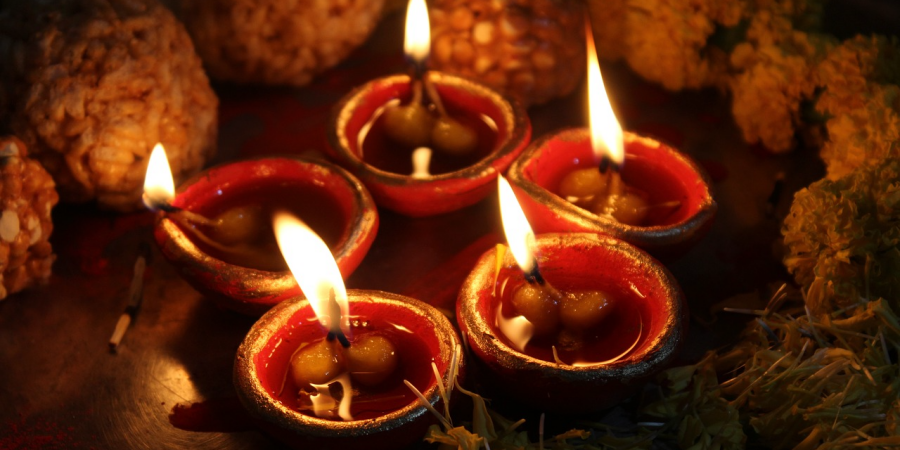

Diwali, or the Festival of Lights, is one of the most celebrated celebrations in India and around the world. It is celebrated with bright lights, delectable sweets, and prayers to commemorate the triumph of light over darkness, good over evil. However, over time, the method of celebration has changed in ways that frequently harm the environment and animals. Firecrackers, excessive lighting, and the usage of non-biodegradable materials have turned this pleasant celebration into an environmental worry. However, it is feasible to celebrate Diwali in a way that is both traditional and environmentally conscious. Here's how you celebrate Diwali in an eco-friendly way while also providing a safe atmosphere for animals.
1. Say no to fireworks.
The widespread usage of firecrackers during Diwali is one of the leading causes of environmental damage. They emit poisonous compounds that pollute the air, induce respiratory problems, and generate noise levels that are dangerous to both humans and animals. Loud explosions can cause great fear in pets such as dogs and cats, as well as disorientation or injury in birds. Instead of using firecrackers, consider alternative ways to celebrate. Light earthen diyas (oil lamps) and decorative lights to brighten your home. You can even organise community events featuring dance, music, and cultural acts that bring people together while protecting the environment and animals.
2. Use Eco-Friendly Diyas & Decorations.
Traditional oil lamps made of clay are a good alternative to electric lighting and plastic ornaments. Avoid using plastic decorations or fake rangoli powder. Instead, use natural materials such as flower petals, rice flour, or turmeric to make rangoli. These materials are biodegradable and do not hurt the environment. You may also make your decorations more sustainable by repurposing items that you already own. Upcycling old clothes, fabric scraps, or paper into banners and wall hangings lowers waste while also adding a personal touch to your holiday decor.
3. Reduce excessive lighting.
While Diwali is a festival of lights, using too many electric lights might waste energy. Use LED lighting, which uses less energy and lasts longer. You can also set a timer to turn off the lights, which will save electricity. Solar-powered lamps and lanterns are another fantastic environmentally responsible way to illuminate your home.
4. Mindful Waste Disposal.
Diwali typically leaves roadways strewn with paper, plastic, and food trash. Rather than adding to the problem, take a proactive approach to trash management. Separate your waste into recyclable and non-recyclable materials, then compost any biodegradable waste. Avoid using disposable plastic plates, cups, and silverware at Diwali celebrations. Instead, use reusable utensils or biodegradable alternatives, such as palm leaf plates or paper cups.
5. Create a Safe Space for Animals Animals, particularly pets, suffer severely during Diwali due to the loud noises and flashing lights. If you have pets like Goldy or Tricksy, provide a peaceful, secure environment for them indoors. Keep the windows and doors closed to suppress the sound of any nearby firecrackers, and provide them with a comfortable, safe environment. For stray animals, you can work with local shelters or organisations to provide temporary shelter. Providing food and water stations in quieter places can also make these animals feel more at ease throughout the celebrations.
By celebrating an eco-friendly Diwali, we are setting an example for future generations to follow. It provides an opportunity to educate children and younger family members about the value of sustainability and animal welfare. Involve kids in activities such as making homemade decorations, creating natural rangolis, and planting seedlings to commemorate the occasion. These tiny but significant activities can inculcate values such as environmental awareness and empathy for all living things. As more people embrace these habits, we can work together to lessen the festival's environmental impact and ensure that Diwali remains a positive celebration for the entire ecosystem, not just humans. Let us change the way we celebrate Diwali, making each one brighter, greener, and kinder.
Conclusion
Celebrating Diwali in an eco-friendly way should not imply sacrificing joy and excitement. On the contrary, it instills a fresh sense of responsibility and thoughtfulness into the celebrations, making them more meaningful. We can ensure that this festival is genuinely a celebration of light, love, and care for the world and all of its inhabitants by decreasing pollution, using sustainable materials, and providing a safe environment for animals. Let's promise to light up not only our homes but also our hearts with compassion and goodwill this Diwali!
Wishing you guys a happy and a safe Diwali 😊 ❤
Thank you..!
